Wild Geese – The Poem
You do not have to be good.
You do not have to walk on your knees
For a hundred miles through the desert, repenting.
You only have to let the soft animal of your body
love what it loves.
Tell me about your despair, yours, and I will tell you mine.
Meanwhile the world goes on.
Meanwhile the sun and the clear pebbles of the rain
are moving across the landscapes,
over the prairies and the deep trees,
the mountains and the rivers.
Meanwhile the wild geese, high in the clean blue air,
are heading home again.
Whoever you are, no matter how lonely,
the world offers itself to your imagination,
calls to you like the wild geese, harsh and exciting —
over and over announcing your place
in the family of things.
~ Mary Oliver
The Escape Story
Once upon a time, millions of years ago in a small village of Foraco, located near the banks of river Thanga, lived a little boy named Charle Margne. He loved everything that was colorful, especially the nature. He had difficulty in learning a lot of things, but he was extremely creative. He was also a little physically weak. So, his parents or his elder brother always remained near him, wherever he went. He sometimes thought this was, somehow, blocking his freedom, but he loved them all. He loved playing with his little sister though.
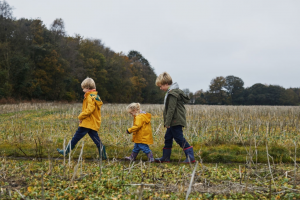
The three siblings would daily go to the bank of river, do some fishing, play there and return home by the evening. The eldest brother, Alburt always took care of his siblings.
One day Alburt was not well, so they decided not to go to the riverbanks. But Charle thought to himself that this was a good chance to escape and exercise his freedom and be one with nature and enjoy.
So, without telling anyone, while his mother was busy attending Alburt, he escaped from the house. He was just in love with freedom, he had just gotten. There was no road he must take and no way he must choose.
The village was adjacent to the forest of erdei király. He lost his way and went straight into the jungle. He kept on roaming throughout the day. And as the evening approached, fear slowly started enveloping his mind. The only thing he was scared in life was loneliness in dark. But it was too long, he was already too deep in the jungle.
Days passed, he was just hoping that someone will come and find him. But no one came. He had no one to talk to, just no one he could tell how scary it is at the night when all he can hear is the sounds of bats and crickets when the dark shadows passing over him. So, one day he thought, his mother once gave him this “magic pen” and told him, “there may be a day when the whole world is following its routine normally and calmly, but you and only you seem to be in despair and, you have no one to talk to. Just write it down on a piece of leaf and leave it under the biggest tree you can see. The nature will read it and send its messenger to you, and he will take care”.
So, he did the same, wrote his heart out on a leaf with that pen kept it under a tree and slept nearby. At night when the army of King Shera (a lion) was out to seek food for the next day, they found him sleeping there. They took him captive. While leaving, the eyes of Vanar Raj (a monkey) fell on that leaflet. He also took it.
When Charle was presented before King Shera in the morning. He could sense both fear and hope in the eyes of this little human child. Vanar Raj said he also found a little leaflet with something written on it near the boy. Shera told him to read the same before all. Everyone was so touched by the despair of the child. And unanimously decided not to kill him and provide him with protection, till his people come and take him.
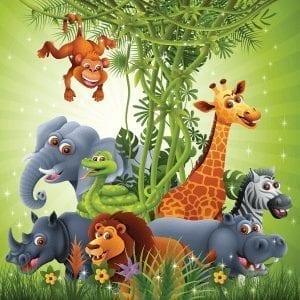
So, he lived with little wild animal kids for a few days, till his father along with police officials came to his rescue. But his new friends that nature had especially sent for him had already accepted and given him a place in their family of things.
Mary Oliver
Mary Jane Oliver (September 10, 1935 – January 17, 2019) was an American poet who won the National Book Award and the Pulitzer Prize. In 2007 The New York Times described her as “far and away, this country’s best-selling poet.”
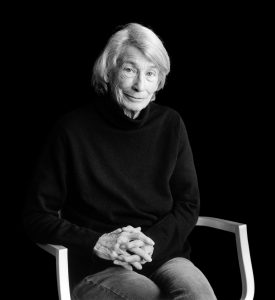
Mary Oliver’s poetry is grounded in memories of Ohio and her adopted home of New England, setting most of her poetry in and around Provincetown after she moved there in the 1960s. Influenced by both Whitman and Thoreau, she is known for her clear and poignant observances of the natural world. In fact, according to the 1983 Chronology of American Literature, the “American Primitive,” one of Oliver’s collection of poems, “…presents a new kind of Romanticism that refuses to acknowledge boundaries between nature and the observing self.” Her creativity was stirred by nature, and Oliver, an avid walker, often pursued inspiration on foot. Her poems are filled with imagery from her daily walks near her home: shore birds, water snakes, the phases of the moon and humpback whales. In Long life she says “[I] go off to my woods, my ponds, my sun-filled harbor, no more than a blue comma on the map of the world but, to me, the emblem of everything.” She commented in a rare interview “When things are going well, you know, the walk does not get rapid or get anywhere: I finally just stop and write. That’s a successful walk!” She said that she once found herself walking in the woods with no pen and later hid pencils in the trees so she would never be stuck in that place again. She often carried a 3-by-5-inch hand-sewn notebook for recording impressions and phrases. Maxine Kumin called Oliver “a patroller of wetlands in the same way that Thoreau was an inspector of snowstorms.” Oliver stated that her favorite poets were Walt Whitman, Rumi, Hafez, Ralph Waldo Emerson, Percy Bysshe Shelley and John Keats.
To read more about Mary Oliver, click here.
Wild Geese – Poem Analysis
Through this poem, Mary Oliver wants to directly talk to her readers. This is very much clear, the way she uses the word “you” in the beginning and throughout the poem.
This poem is an attempt by Oliver to inspire people to be true to themselves and nature rather than run a never-ending race to be perfect for people. And that “you” are not alone with life full of despair. There are millions, and you will definitely find someone to share it with. You just need some patience. This is also and attempt by the poet to promote human connectivity.
She says even the “wild geese” who have already endured the harsh winters are heading to home, so will you one day.
This is a really inspiring poem.
To read more famous poems by the finest writers ever, click here.
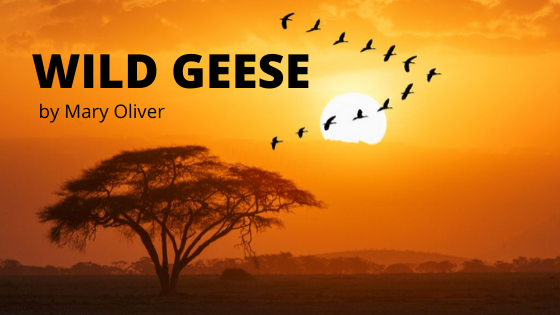


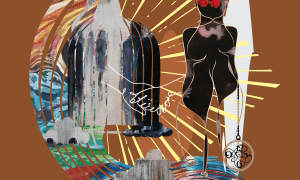

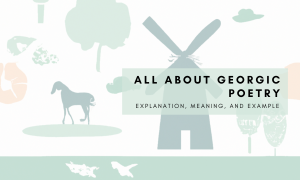


This poem makes you feel you are not alone, no matter what. Someone up there 👆 is always listening 👂.